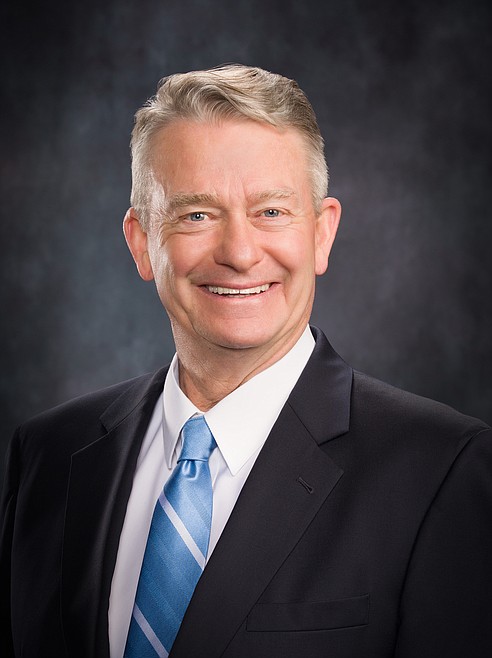Idaho gov urges 'personal responsibility' as COVID spreads
BOISE (AP) — Idaho's coronavirus cases are rising fast and hospitals are seeing an influx of COVID-19 patients, Gov. Brad Little said Thursday.
Still, he said, personal responsibility, not a statewide mandate, remains the best way to reduce the burden on hospitals and slow the spread of COVID-19.
"Our personal actions work better to slow the spread of coronavirus than anything else," Little said. "This is about personal responsibility, something Idaho is all about."
Little said the state would again remain in Stage 4 of his four-step reopening plan, allowing all businesses to continue to operate and large events to be held as long as social distancing guidelines are followed. The governor also urged anyone who is at higher risk of developing complications from COVID-19 — and those who share their household — to vote by absentee ballot rather than risk exposure at the polls in November.
"If anybody has a health concern they need to go out and get an absentee ballot. You could be the most healthy person in the world, but if you've got someone health-compromised at home, I would encourage you" to vote absentee, Little said.
The Idaho Department of Health and Welfare reported 645 new cases of coronavirus on Wednesday, with the state nearing 50,000 cases since the pandemic began. Those numbers are liked an undercount, since not everyone with the virus has been tested, and some infected people are asymptomatic and don't realize they've contracted the illness.
Idaho ranks seventh in the nation for the number of new cases per capita over the last two weeks, and the state saw a record high number of new cases in one day on Tuesday, with 798 new cases reported.
Hospitals across the state reported that they had 219 patients with COVID-19 on Monday, the most recent data available. Fifty-six of those patients were in intensive care units. So far more than 500 Idaho residents have died from the illness.
Little has declined to issue a statewide mask mandate despite the rising cases. Instead he's left those decisions up to local governments and regional health departments. In many parts of the state, local mask mandates are not enforced, leaving small businesses left to decide if they will require and enforce mask-wearing.
"I'm kind a free market guy," Little said when asked about leaving those decisions up to businesses and retail workers.

